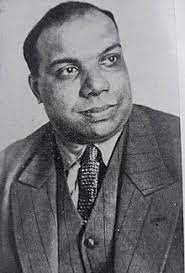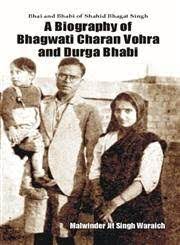
#SheshadriIyerJayanti
Let’s read about the Dewan who made KGF what it is!
Shivanasamudra is where Asia’s first major hydroelectric power plant began operations.
Once the hydroelectric project commenced operations, he drew a voltage line from Shivanasamudra to KGF,

Let’s read about the Dewan who made KGF what it is!
Shivanasamudra is where Asia’s first major hydroelectric power plant began operations.
Once the hydroelectric project commenced operations, he drew a voltage line from Shivanasamudra to KGF,


revolutionising mining operations at the gold field.
The gold fields were 147 km away from the waterfalls, making the transmission line the longest in the world at the time. THIS WAS IN 1902.
This is just one of the many achievements of the man regarded by most at the
The gold fields were 147 km away from the waterfalls, making the transmission line the longest in the world at the time. THIS WAS IN 1902.
This is just one of the many achievements of the man regarded by most at the
‘Maker of Modern Bangalore.’
This thread is all about K Seshadri Iyer’s vision, efforts & the achievements of this brilliant man.
Sir Kumarapuram Seshadri Iyer served as the Second and was also the Mysore’s longest serving Dewan.
Born to Ananthakrishna Iyer & Venkatalakshamma
This thread is all about K Seshadri Iyer’s vision, efforts & the achievements of this brilliant man.
Sir Kumarapuram Seshadri Iyer served as the Second and was also the Mysore’s longest serving Dewan.
Born to Ananthakrishna Iyer & Venkatalakshamma
on June 1, 1845, Seshadri Iyer spent his early childhood in Palghat.
After completing his early education in Calicut and Trivandrum, Seshadri Iyer graduated in arts from Presidency College in Madras in 1868.
From 1881 to 1883, he served as an officer in the services of the
After completing his early education in Calicut and Trivandrum, Seshadri Iyer graduated in arts from Presidency College in Madras in 1868.
From 1881 to 1883, he served as an officer in the services of the
kingdom of Mysore, first as a district magistrate and later as personal secretary to the first Dewan of Mysore, Rangacharlu. When Rangacharlu died in 1883, Sheshadri Iyer succeeded him. The previous dewan had been a brilliant, courageous and highly respected administrator and
Sheshadri Iyer was determined to be the same.
In 1889 he constructed the famous Glass House at Lalbagh. The Glass House is the Lalbagh garden’s biggest attraction. Also, to use it as a venue to host the flower shows. The first flower show at Glass House was in the year 1912.
In 1889 he constructed the famous Glass House at Lalbagh. The Glass House is the Lalbagh garden’s biggest attraction. Also, to use it as a venue to host the flower shows. The first flower show at Glass House was in the year 1912.
One of Bharat’s leading figures, Jamsetji Nusserwanji Tata was convinced that the future progress of the country depended crucially on research in science and envisaged an institution that would encourage the same. In 1898, he was on the lookout for a suitable place for such an
institution when he met and discussed his idea with Sheshadri Iyer.
Agreeing with Tata on the fact that a better quality education would serve the country well, he convinced the then-ruler of Mysore, Krishnaraja Wodeyar IV, to donate roughly 372 acres of free land in the heart
Agreeing with Tata on the fact that a better quality education would serve the country well, he convinced the then-ruler of Mysore, Krishnaraja Wodeyar IV, to donate roughly 372 acres of free land in the heart
of Bangalore & provide other necessary facilities. This educational institution later became the Tata Institute of Science, renamed the Indian Institute of Science (IISC) in 1911.
Other than starting insurance schemes for government employees, he also started agricultural banks
Other than starting insurance schemes for government employees, he also started agricultural banks
to help poor farmers and land owners who had to depend on loans from private parties at higher interest rates. He also codified the revenue lands in the state and undertook the cleaning and desilting of reservoirs to improve irrigation and water storage.
In 1898, a devastating
In 1898, a devastating
plague in Bangalore wiped out most of the city’s population. In the aftermath of the disaster, Sheshadri Iyer took many steps to help the people of the city and improve their living conditions. Streets were decongested, trees were planted, roads were widened and sanitation was
improved. Many new commercial and industrial units were established to increase employment opportunities for the people of the city.
The Result was Victoria Hospital which is serving 1000s everyday till date.
Along with the extension of residential areas in Basavanagudi and
The Result was Victoria Hospital which is serving 1000s everyday till date.
Along with the extension of residential areas in Basavanagudi and
Malleswaram, Seshadri Iyer started the Chamarajendra Water Works to supply water to the city from Hesaraghatta Lake in 1894. With the help of a brick aqueduct & steam engines, water was pumped up to a reservoir from where it flowed to Malleswaram & then to the rest of the city.
This simple yet effective design worked brilliantly between 1894 and 1935, serving as a substantial source of water for about 45 years.
The hydroelectric plant at Shivanasamudra, called the Sir Sheshadri Hydel Station, also supplied power for the construction of the Mettur dam
The hydroelectric plant at Shivanasamudra, called the Sir Sheshadri Hydel Station, also supplied power for the construction of the Mettur dam
in Tamil Nadu in the 1930s, In May 2006, it was made a National Heritage Centre.
Having administered the kingdom of Mysore for a span of 18 years, Sheshadri Iyer remains the longest-serving Dewan of our Mysore. A disciplined life, dedication to duty, and practical imagination
Having administered the kingdom of Mysore for a span of 18 years, Sheshadri Iyer remains the longest-serving Dewan of our Mysore. A disciplined life, dedication to duty, and practical imagination
were the hallmarks of this exceptional statesman. In his book ‘Gold, Sport and Coffee Planting in Mysore,’ Robert H.Elliot says:
“I may pause here to remark that what I saw and heard at the Assembly, combined with what I previously knew of the Mysore Government, satisfied me
“I may pause here to remark that what I saw and heard at the Assembly, combined with what I previously knew of the Mysore Government, satisfied me
that a more perfect form of government does not exist in the world…..While I have heard much in favour of the Dewan, I have never heard a single deprecatory remark made concerning his administration of the province, either by natives or Europeans. Mysore is indeed extremely
fortunate in having such a man as Mr. Seshadri Iyer, since made Sir K. Seshadri Iyer, at the head of affairs.”
In present-day Bengaluru, Seshadripuram (a city extension created in 1892), Seshadri Road, Seshadri Memorial Library, and his statue in the Cubbon Park remind citizens
In present-day Bengaluru, Seshadripuram (a city extension created in 1892), Seshadri Road, Seshadri Memorial Library, and his statue in the Cubbon Park remind citizens
• • •
Missing some Tweet in this thread? You can try to
force a refresh











